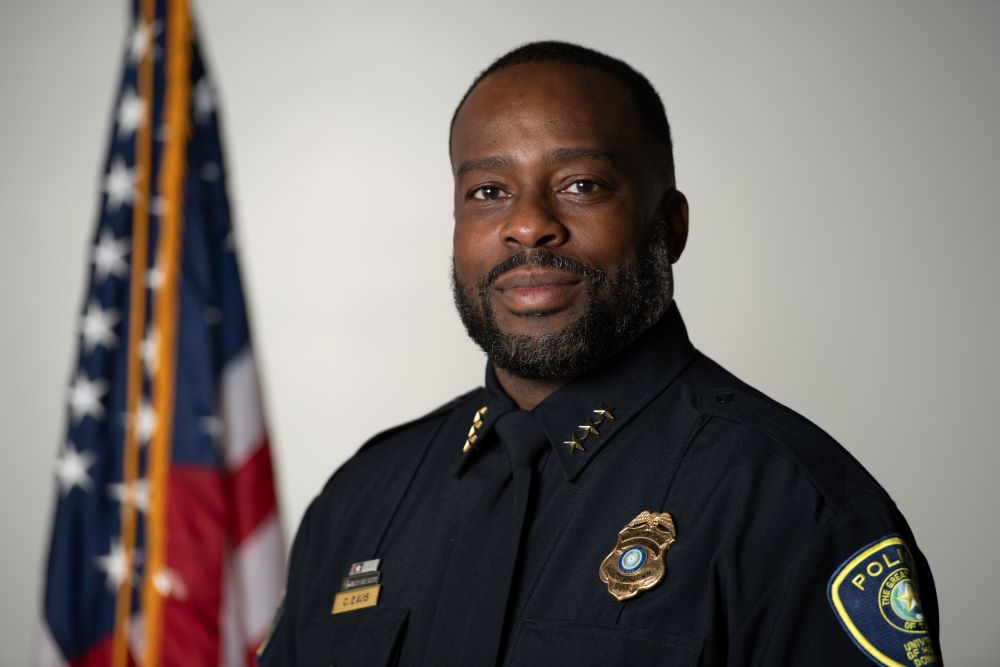UHD Professors Shine a Light on Campus Security and Crime Prevention
An Interview with UHDPD Police Chief Casey Davis
How many universities can boast that their Chief of Police has a doctorate degree in criminology AND is the focus of an article in an academic journal?
"Campus Security and Crime Prevention: A View from a Police Chief with a Ph.D. in Criminology" by Drs. Judith Harris and Hsiao-Ming Wang, Criminal Justice professors in the UHD College of Public Service,
was recently published in the Journal of Applied Security Research. They interviewed
UHD Police Chief Casey Davis, who earned his undergraduate degree in English from
UHD, a Master of Education in Administration and Supervision from the University of
Houston-Victoria, and his doctorate from Texas Southern University. He also holds
Master Peace Officer, Public Information Officer, and TCOLE Instructor Certifications.
Chief Davis is a graduate of Sam Houston State University's Law Enforcement Management
Institute of Texas' Leadership Command College, Class #79.
Hsiao-Ming Wang, Criminal Justice professors in the UHD College of Public Service,
was recently published in the Journal of Applied Security Research. They interviewed
UHD Police Chief Casey Davis, who earned his undergraduate degree in English from
UHD, a Master of Education in Administration and Supervision from the University of
Houston-Victoria, and his doctorate from Texas Southern University. He also holds
Master Peace Officer, Public Information Officer, and TCOLE Instructor Certifications.
Chief Davis is a graduate of Sam Houston State University's Law Enforcement Management
Institute of Texas' Leadership Command College, Class #79.
Campus security and crime prevention are the number one priorities for any educational institution police department. Chief Davis credited his advanced degree in helping him make informed decisions in daily operations. He knows, too, that earning the community's trust is essential to the success of peace officers, suggesting a balance between the use of technology and community policing with a focus on preventing crime by understanding its causes.
When asked, "What do you think are the roles and functions of the police in the 21st century?" Chief Casey responded that "the roles and functions of police should align with the six pillars of 21st-century policing: building trust and legitimacy, policy and oversight, technology and social media, community policing and crime reduction, officer training and education, and officer safety and wellness. We should continue to regain and maintain the trust of the communities that we serve. Community policing should be our focus because it leads to crime reduction and improved relationships between police and citizens."
